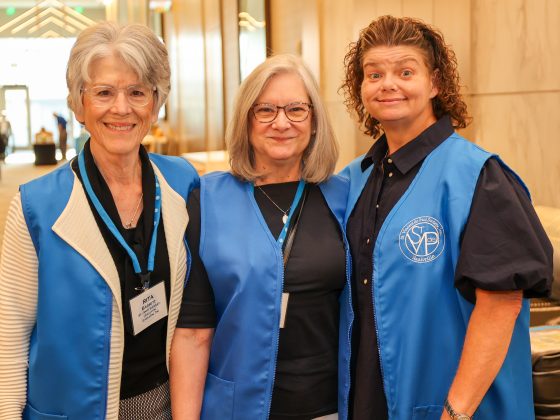In describing the Vincentian Vocation, our Rule says that our “ideal is to help relieve suffering for love alone.” [Rule, Part I, 2.2] Many, if not most Vincentians are first drawn to the Society by the desire to do something; to love God, as St Vincent put it, “with the strength of our arms and the sweat of our brows.”[CCD XI:32]
Relieving suffering, we think, is an end in itself; to serve those in need without discrimination or judgment; to give of our time, our possessions, our talents, and ourselves. So, what does it mean to do all this for love alone?
St. Paul teaches that of the three theological virtues – faith, hope, and love – the greatest of these is love. So that, even as the Letter of James asks us not to “forget the necessities of the body” because “faith without works is dead,” Paul declares that even “if I have faith enough to move mountains but do not have love, I am nothing. If I give away everything I own … but do not have love, I gain nothing.”
The apostle here strips away nearly everything but love.
It’s important to understand that in the Greek, the scriptures use several different words for love. The one Paul uses here is agape – the love of God. This love is not an emotion; it’s an act of will. Of putting the needs of another before our own. Agape sometimes also translated as “charity.”
Bl. Frederic once contrasted philanthropy (simply giving away our possessions) with charity saying: “Philanthropy is a vain woman for whom good actions are a piece of jewelry and who loves to look at herself in the mirror. Charity is a tender mother who keeps her eyes fixed on the infant she carries at her breast, who no longer thinks of herself, and who forgets her beauty for her love.“ [90, to Curnier, 1835] What purer image of charity could there be than the self-giving love of a mother?
Our catechism defines charity as “the theological virtue by which we love God above all things for his sake alone, and our neighbor as ourselves, for the love of God.”
As it happens, Jesus once said something quite similar. We call it the greatest commandment, so it should be no surprise that Vincentians are called to live that commandment.
If we seek to relieve physical suffering alone, or, as Frederic put it, we “appeal to men from below, taking heed of their material wants only,” we will often be disappointed; we will often come up short. But the love of God is in endless supply, and as St. Paul assures us: love never fails.
Contemplate
How can I grow closer to the ideal of serving for love alone?




Understand, yet getting there, for me, is a life journey.
I ask myself,”what’s your motive”?